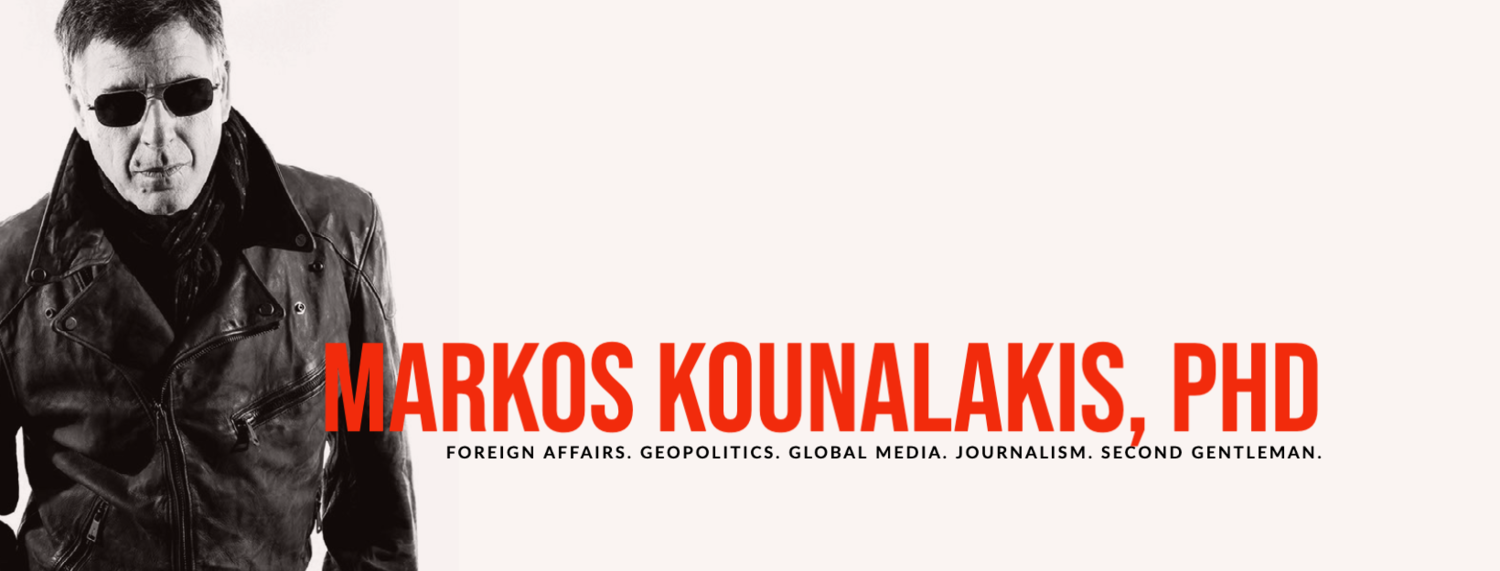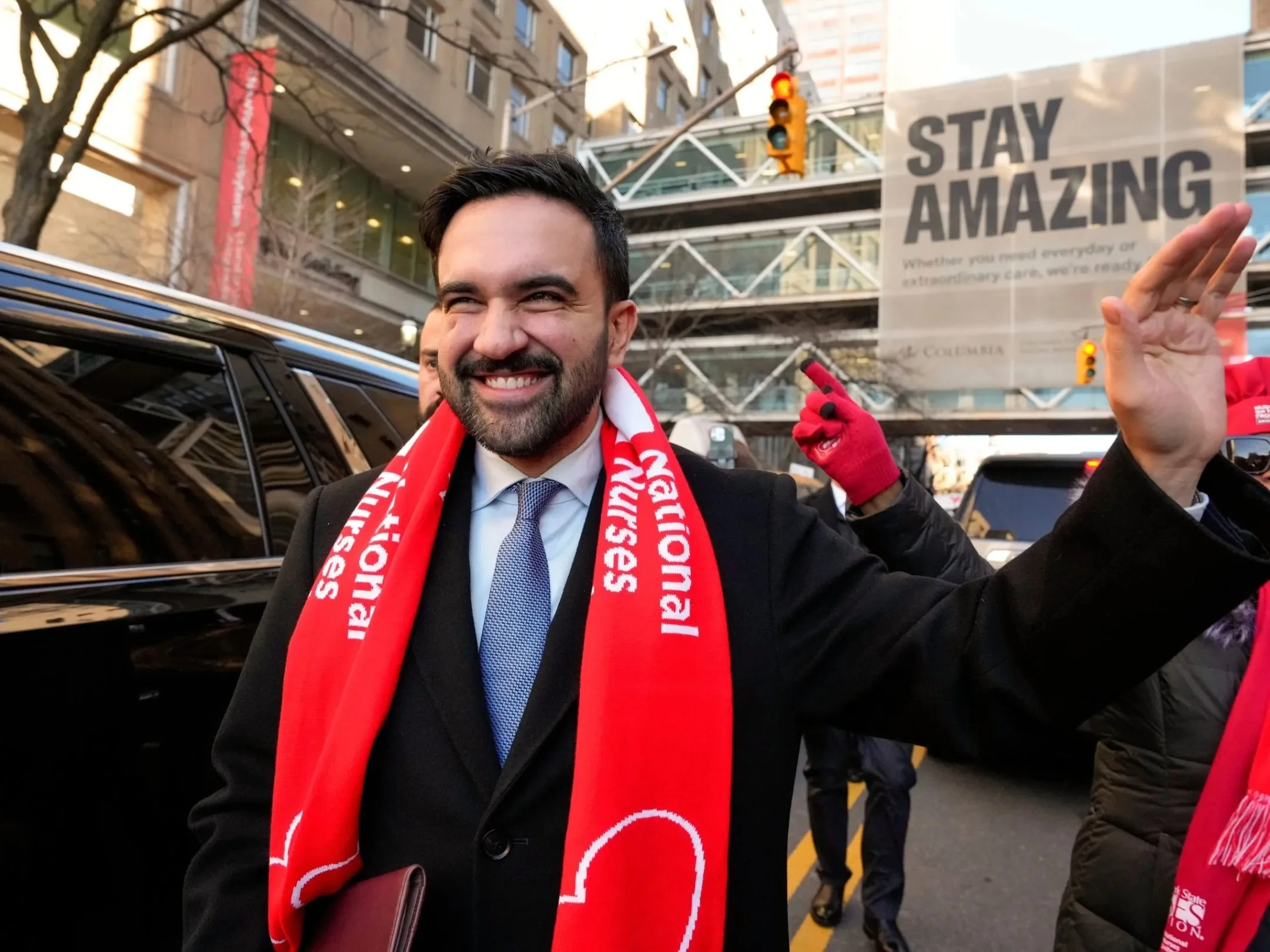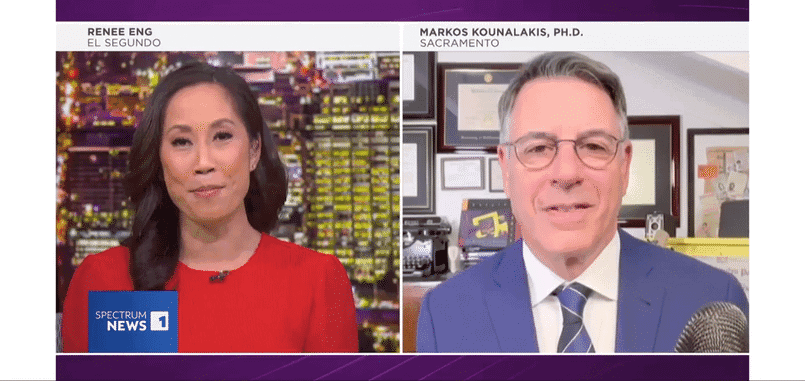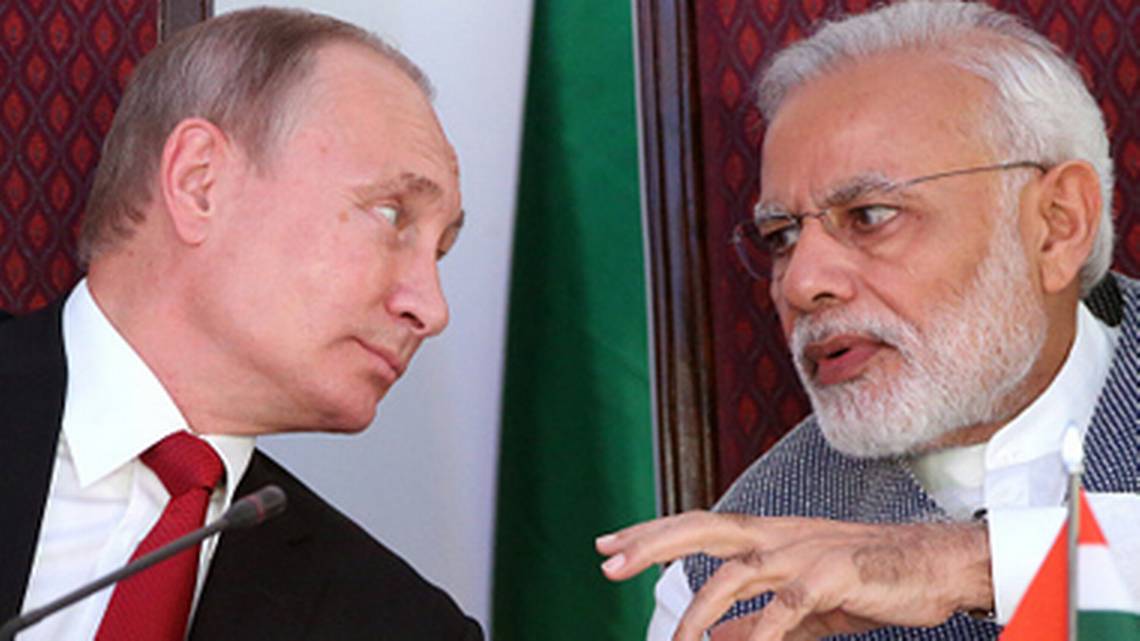Mamdani: The Unique Voice of NYC’s First African-Born Mayor
The job is local. The platform is global. This is the fundamental paradox facing every mayor of New York City, a metropolis of 8.5 million souls that also serves as the de facto capital of the world, and the home of the United Nations with its 193 member states. Most nations have U.N. offices in New York as well as missions. It’s arguably the most diverse city on earth, with 180 languages spoken in its public schools.
While the quotidian duties of New York City’s mayor require an obsessive focus on sanitation and safety, subways and schools, the city’s role as U.N. host and its continued role as the world’s financial center thrust its leader onto a geopolitical stage. New York’s new mayor, Zohran Mamdani, its first foreign-born mayor to be elected in over 50 years, understands this duality better than most. The question is how he will wield it. READ MORE
Ukraine War commentary on Spectrum News
Ukraine War Analysis on Spectrum News
“Inside the Issues” host Amrit Singh was joined by Markos Kounalakis, a visiting fellow at Stanford University’s Hoover Institution, to discuss the latest on the war in Ukraine. On Spectrum News 1, December 13, 2023.
Spectrum News' Renee Eng speaks with Markos Kounalakis, visiting fellow at Stanford University’s Hoover Institution, to discuss the ongoing war in Ukraine. Live on Spectrum on November 7, 2023.
Kamala Harris’ cultural background will make her a player on the global stage
California is waiting to be welcomed back into the national conversation after four years of disrespect and neglect from the White House. In a Joe Biden-Kamala Harris administration, not only will California’s favorite daughter bridge the widened — and widening — federal-state divide, she will team with a President Biden to rebuild America’s powerful role in the world.
In fact, Harris could be key to building new strategic global relationships and alliances. (Disclosure: My wife and I are Harris’ longtime friends.) While Biden shores up NATO, reaffirms multilateral agreements and Zoom calls his close foreign-leader friends, Harris will also bring unique foreign-policy advantage to the table. READ MORE
Autocrats on the left and right are deserting Trump and embracing China
Venezuela is a bipolar nation in the eyes of the world. More than 50 countries recognize the government of interim President Juan Guaidó. The rest of the world — most significantly Russia and China — continue to support and strengthen the grip of President Nicolás Maduro.
It’s bad enough that the Trump administration has been all bark and no bite, trying to flip the failed Latin American state’s leadership with tough rhetoric and State of the Union ovations. What’s worse is that America under its current leadership has shown that there are neither significant consequences nor consequential actions that can be taken when a foreign country snubs Washington in favor of Moscow or Beijing.
The latest nation to reject President Trump’s foreign policy puffery? The former American colonyand current conflict-ridden country of the Philippines. READ MORE
Power-hungry Rudy Giuliani tripped over his own ego and fell hard
Rudy Giuliani was a shoo-in for attorney general or to head up the Department of Homeland Security in a nascent Trump administration. Not only was Giuliani “America’s Mayor” following his command of the situation on 9/11, he was a former federal prosecutor, presidential candidate and an early validator — if late endorser — of Donald J. Trump.
Life looked pretty rosy for the ambitious pol, with a clear path to power and privilege, given his expertise.
He didn’t want the jobs proffered, however. He wanted something bigger.
Whether he was done with the law or just wanted something that approximated the power and prestige of the presidency, he postured and heavily lobbied to be Trump’s secretary of State. As the former mayor of America’s most important city, he was regularly in the company of foreign dignitaries and, of course, 9/11 gave him a global stage from which to show off his leadership skills. READ MORE
Trump has robust, sensible foreign policy goals. But he doesn’t have any follow-through
Donald Trump’s successful 2016 road to the White House was paved with irreverent campaign rhetoric and a world of good intentions regarding American foreign policy. Like Barack Obama before him, he called the Iraq War a mistake and recognized China as a rising global competitor. Where Trump differs with his predecessor on foreign-policy goals is mostly reflected in an approach toward personnel and a highly personal style that forswears process and favors disruption.
The president’s critics should realize, however, that when it comes to both Trump’s instincts and intentions, his desired foreign-policy outcomes are mostly aligned with those of past presidents and in sync with longstanding American goals. READ MORE
Bolton’s baby was bombing Iran. Now what?
Iran and America are entering an intense face-off phase now that the NSC’s John Bolton is no longer around to push for bombing Tehran.
President Trump is hoping American pressure and the ongoing trash-talking between the U.S. and Iran can lead to the eventual smoking of a peace pipe.
Wars of words can sometimes lead to shooting wars, or they can raise the stakes so high that negotiations and lowered tensions can follow. Which will it be with Iran? Talks or continued terror? Or both?
Upcoming U.N. General Assembly sideline huddles or principal meetings might take place, especially now that Bolton can no longer undermine the U.S. president’s photo-ops and off-the-cuff concessions. With Bolton gone, the White House’s “bad cop, worse cop” act is over. Trump’s instincts and near absolute power in foreign policy now take over on Syria, Afghanistan, Iran, and North Korea. READ MORE
If we go to war with Iran, blame President Jimmy Carter
Jimmy Carter may be the one to blame if President Trump goes to war with Iran, thanks to his handed-down Carter Doctrine.
The 94-year old ex-president is recovering from a turkey shoot hip injury, but while he was in the White House refusing to pardon Thanksgiving turkeys, he changed the course of America’s Iran policy.
Carter asserted that any nation trying to control the Persian Gulf or restrict the free-flow of oil through the Straits of Hormuz was acting against America’s “vital interests.” Carter articulated this message near the end of his presidency and at a time when revolutionary Iran held the United States hostage and the Soviets militarily occupied Afghanistan.
The message to Iran and the USSR was clear: Make a move on the neighborhood, mess with shipping, slow the flow of oil and risk going to war with the United States. READ MORE
Trump’s foreign policy is pushing allies into China and Russia’s waiting arms
Nuclear tensions on the Korean Peninsula have diminished since last summer’s Singapore summit between President Trump and North Korea’s Supreme Leader Kim Jong Un. In the run-up to this month’s Vietnam summit, Trump is acutely aware that a potential landmark deal on Kim’s complete, verifiable and permanent denuclearization would be a significant foreign policy win for him, the region and the world.
Unfortunately, that potential deal is where Trump’s foreign policy successes both start and end.
By any other measure, the president’s aggressive pursuit of nativist policies has weakened America’s global leverage, given its adversaries strategic openings and made the world a little less safe for democracy and human rights. In normal times, this would be seen as a failure of leadership and a threat to America’s fundamental values, global stature and international dominance.
These are not, however, normal times. READ MORE
With Juan Guaidó seizing the presidency, Venezuela’s ‘Latin Spring’ is heating up
Arab Spring, move aside. Latin Spring is now blossoming, and if all goes well, it will be less bloody and a lot more successful at ousting corrupt leaders and promoting homegrown democratically elected representatives than the Middle East revolutions.
The North African and the Middle East popular movements that began in late 2010 shook up the power balance, catalyzed civil wars and further destabilized the region. Venezuela just experienced a so-far relatively peaceful and planned constitutional coup.
It’s way too early to predict if the effects of Wednesday’s dramatic event will devolve into chaos or breed new forms of violence, corruption, juntas or dictatorships, but as with the Arab Spring countries, what kicked Venezuelans into action is that daily life hit rock bottom. Living conditions have gotten so bad that people’s hope for a better life completely dissolved. Ninety percent of Venezuelans today are living in poverty and over the last year had lost an average of 24 pounds. Citizens were both on the path to real starvation while on a strictly enforced diet from democracy. READ MORE
Trump’s foreign policy is all about him. That’s not good for us, or the rest of the world
Snap troop withdrawal from Syria? Overnight decisions for a dramatic military draw-down in Afghanistan?
America’s foreign-policy and national-security establishment is reeling from the rapid-fire changes, declarations and White House edicts. Our allies are shocked, too.
While President Trump’s tweet-from-the-hip policy-making is shocking and shaking-up the world, no one should be surprised.
The truth is, Donald Trump has never lied to us about his foreign-policy priorities. We may not have wanted to believe him, we may ultimately find out that they were improperly influenced, we may even disagree with them. But the reality is that he has not simply intimated or coyly indicated how he sees the world and what he wants to do. He has told us. Repeatedly.
Treaties? Tear them up. READ MORE
Nicaragua’s ‘House of Cards’ stars another corrupt and powerful couple
Nicaragua is a political stage where a real-life “House of Cards” is now in its second season. President Daniel Ortega and his wife and partner in crime, Vice President Rosario Murillo, have together run the country as an increasingly violent family business for the last couple of years. Ortega has been continuously in power for the past decade and, all in all, for four long terms with no term limits. The next elections are scheduled for 2021.
Ortega and Murillo make the Netflix series’ Frank and Claire Underwood seem like law-abiding, Constitution-respecting, selfless public servants. The Ortega family runs everything, owns the ruling Sandinista Party, dominates media, monopolizes power, skims profits and loots the nation. They are living proof of Lord Acton’s axiom that, “Absolute power corrupts absolutely.”
The United States has now decided to shut down parts of the Ortega-Murillo gang’s operation by freezing funds and flummoxing any financial transactions using American banks or brokers. READ HERE
Under Trump’s “sovereignty doctrine,” foreign tyrants have nothing to worry about
Jamal Khashoggi’s horrific murder was a message to journalists, dissidents and regime critics everywhere. You are never safe. Anywhere, anytime.
Khashoggi was guilty of practicing journalism. He mistakenly bet he would be safe traveling to a NATO member nation to take care of personal business. Why? Because nations generally follow both international law and formal diplomatic practices that respect foreign laws and sovereignty.
Increasingly, however, more nations are exporting fear and practicing lethal intimidation with a new form of global vigilantism. They go abroad to get outlaw revenge.
The Khashoggi case is the latest example of exceptional and perverse murderous state-related behavior that targets and takes out perceived opponents living in exile. It’s not just journalists abroad practicing their profession that are singled-out for murder. Turncoats living in other countries are targets, and killing them, too, is a clear warning to future defectors and detractors. READ MORE
Haley leaves the stage as America prepares to assert a harsher global vision
Nikki Haley is getting out just in time.
With Venezuela on the brink of collapse and renewed Iran sanctions kicking in on Nov. 5, Haley will be on her way out the U.N. door as the world comes knocking on it to call for greater American accountability and support.
Haley could handle it, of course — she gives as good as she gets. However, it might just be a good time for her to be sipping mint juleps on a South Carolina back porch as this administration executes a more-assertive foreign policy — one the United Nations will not look upon kindly.
The Trump administration is actively advocating for and catalyzing regime change in several countries, but with no plans to participate in follow-on nation building.
The administration clearly is disregarding Colin Powell’s famous use of the Pottery Barn rule, “You break it, you own it.” There are plenty of plans to break Iran and Venezuela, for example, but no clear plans to take ownership for the nation building that needs to follow any traumatic or violent event in an already-struggling society. READ MORE
CNN Newsroom: A look at NATO & Montenegro
Kounalakis on if US should defend NATO countries: "We answered that question a long time ago"
Markos Kounalakis, Visiting Fellow at the Hoover Institution at Stanford University, discusses the uncertainty around President Trump's comments about NATO. CLICK HERE FOR VIDEO















